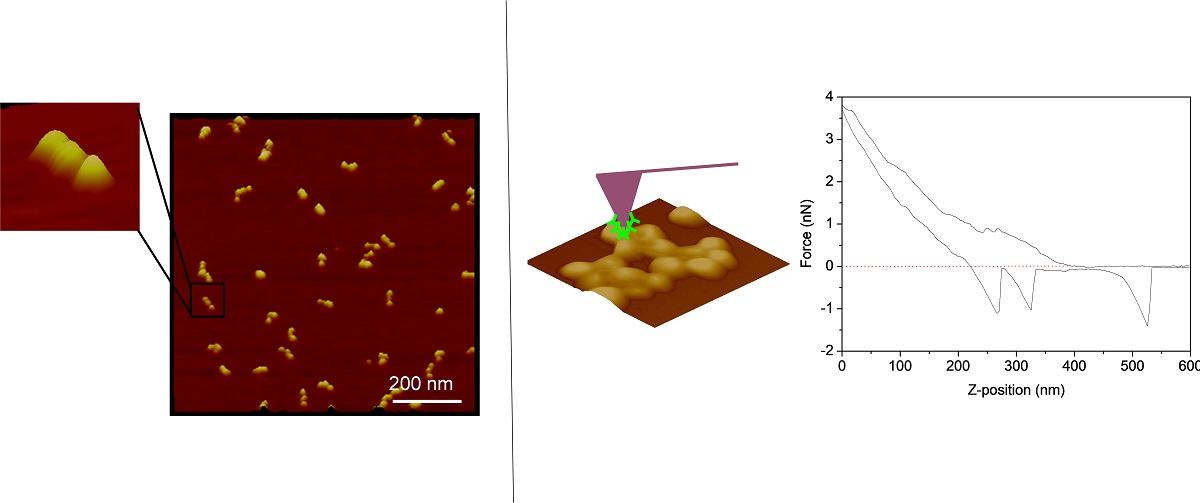NIH Instrumentation Grant to enhance College of Medicine Atomic Force Microscopy Core

Penn State College of Medicine’s Biomedical Research Core Facilities recognizes Chris Siedlecki, PhD for his recent S10 award (S10OD030279) and a TSF award to support the purchase a Nanowizard High Speed Atomic Force Microscope and conduct a related research project.
Atomic Force Microscopy (AFM) is a biophysical method that allows topological, nanomechanical and biophysical data of biological hydrated samples including cells or tissues. For example, spatiotemporal measurements provide information such as dynamic measurements of protein/virus/small molecule structures, the mechanical properties of cells and tissues, and the binding strength between biological molecules (Figure 1).
Imaging can be performed in native-like environments, such as ambient temperature and pressure, physiological buffers and in membranes. Single molecule force spectroscopy measurements and custom-designed ramp and clamp experiments allow measurement of biological interactions and biomechanical properties of biological objects and biomaterials. These data can be used to determine the changing properties of cells in response to environmental factors as well as the local modulus at the nanometer scale.
This AFM system includes an inverted optical microscope and fluorescence capabilities. This will allow for simultaneous imaging by multiple modes, high precision placement of the AFM probe on samples, as well as the ability to monitor cell responses to applied forces. AFM images can be obtained at up to 10 frames/second, several orders of magnitude faster than our currently available instrument. Tiling functions will allow the user to take multiple images from the same sample and then assemble them, with high resolution AFM measurements possible at any locations within the tiled montage.
This instrument will join the Multiscale Imaging Section of the Biomedical Core Facilities. In a partnership with the Biomedical Core Facilities, Siedlecki and his longtime collaborator, Lichong Xu, PhD, will provide expertise and training to investigators who would like to incorporate AFM into their research. Jen Sloppy, PhD, will provide support for booking, billing and technical expertise. The instrument should be on-site, operational and bookable in ilabs by Feb 2024, so watch Discovery Digest for information about an informational seminar later this year.
Learn more about AFM and the new instrument by contacting Chris Siedlecki
If you're having trouble accessing this content, or would like it in another format, please email Penn State Health Marketing & Communications.
